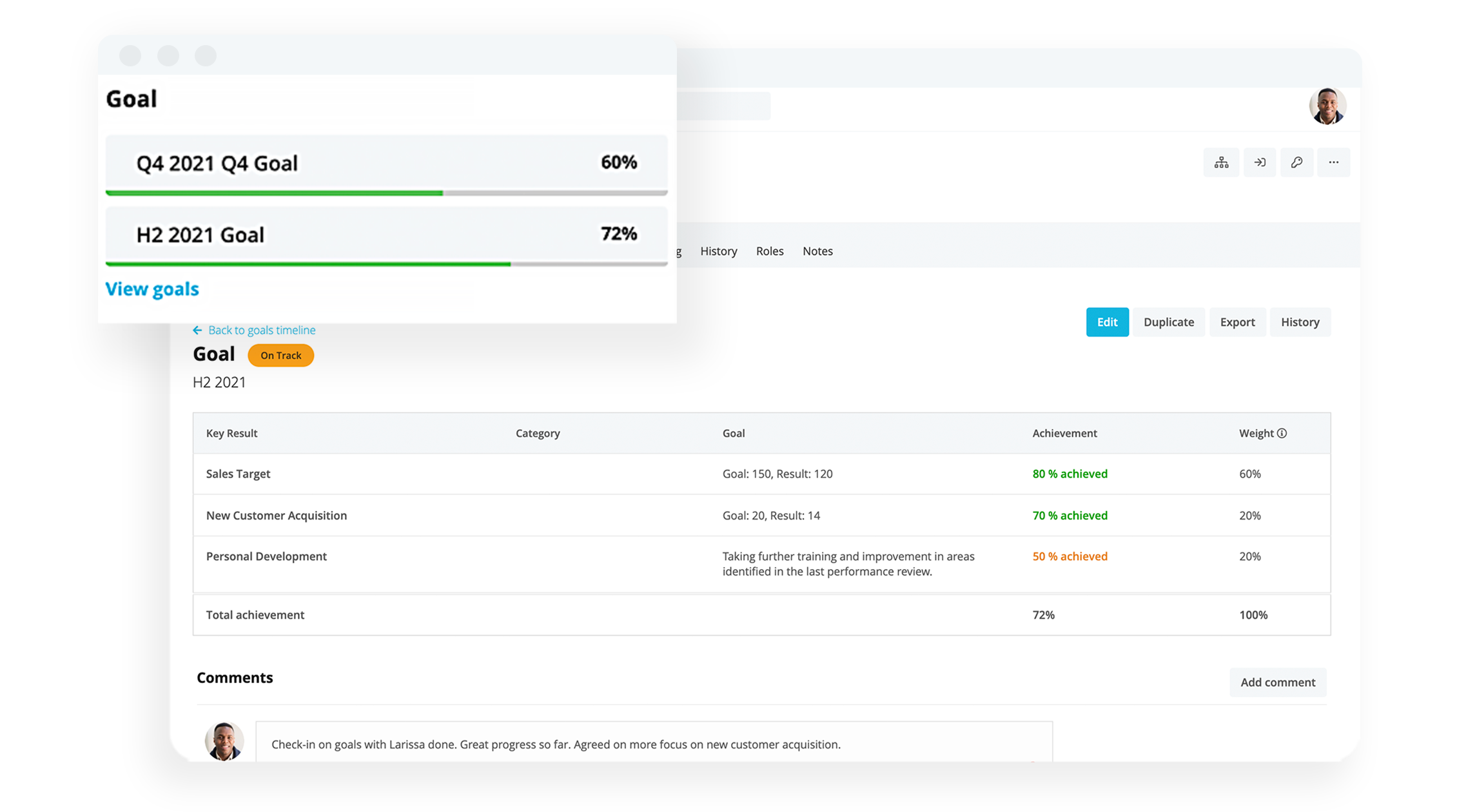Key Differences Between Coaching and Mentoring

In this article, we’ll examine the difference between coaching and mentoring. The guide below highlights the effect each can have on your company, so you can make a more informed decision on which to exactly leverage.
Key Facts
Coaching and mentoring are two approaches to teaching that share the same goal.
Coaching is a non-direct method of teaching that focuses on improving employee performance.
Mentoring is a direct knowledge transfer that focuses more on an employee's personal development.
What is coaching and mentoring?
Coaching is a way of providing training to an employee to help them grow their skills or understand something on their own, typically on a short-term basis. Overall, coaching is a non-direct method of teaching that poses questions and gives time for employees to reflect and improve their job performance.
In contrast, mentoring is a more direct skill transfer from a senior employee to a junior one that allows the newer employee to decide how to use the knowledge given. It helps workers grow personally, so they can perform better in a professional space.
What Is Coaching in an Organisation?
Coaching is a non-direct way of teaching employees valuable skills by asking open-ended questions to make employees reflect on their performance and how they can improve.
What Is Mentoring in an Organisation?
Mentoring is a direct way of teaching employees work-related knowledge by pairing them with senior employees with insight into the areas they want to learn about.
Coaching vs. mentoring: What are the differences?
While coaches and mentors set out to achieve the same goal of improving an employee beyond their current skill level, there are several differences between them.
Coaching | Mentoring |
|---|---|
Often a short-term relationship between coach and employee. | Often a long-term relationship between mentor and employee. |
Focuses more on improving job performance than on encouraging personal growth. | Focuses on developing the employee’s personal skills, which they then apply within the workplace. |
Indirectly promotes learning by asking questions and trusting employees to consider how they can achieve more with what they learn. | Directly promotes learning with active knowledge transfer from a senior employee to a junior one (or vice versa). |
Often requires that coaches have some form of certification or formal training in coaching methods for greater effectiveness. | Generally doesn’t require any training or qualification beyond knowledge of the organisation. |
What’s needed to be a great coach?
A coach needs several key skills and traits to teach employees effectively, which is why they often require certification or some form of training.
Some of what they need to know includes:
How to communicate effectively. A good coach can construct a dialogue around a employee's strengths and weaknesses. They may challenge the employee to question their performance in the workplace, to pinpoint obstacles to improvement and give them a clear direction on how to move forward.
Giving and receiving feedback. Good feedback helps create long-lasting change in an employee’s behaviour and performance. Additionally, being able to receive it, in turn, helps build a rapport between the coach and employee while improving the coach’s methods.
Active listening skills. A coach should be able to listen to the employee and readily identify the potential issues an employee is having. Doing so can help develop open-ended questions to ask employees and help them find the solutions needed to grow within their roles.
Building a safe space. Coaches need to build trust between themselves and employees by creating a place where they won’t face repercussions for expressing themselves. Without that trust, the coaching method is less effective because employees are less likely to follow through on their coach’s advice.
Empathy. Asking the right questions and getting employees to think about the right things boils down to understanding them on more than a surface level. Showing empathy towards what they say helps ensure that a coach can provide the most effective support.
What’s needed to be a great mentor?
While mentors often don’t require a prior certification, they still need certain traits to ensure that a junior employee benefits from the experience. Some traits of a good mentor include:
First-hand experience. One of the most important traits a mentor can have is genuine, unique insights into the areas mentees are interested in. Without that experience, employees won’t have a solid foundation to grow their skills.
Interpersonal skills. Mentorship requires good communication skills to build a solid relationship between both parties. Open and honest communication is necessary for the mentee to get the most out of the mentor’s knowledge.
Active listening. Senior employees need to be able to give their undivided attention to the junior to better understand the issues they’ll need to address. In addition, active listening helps ensure that a mentor gives the best advice possible to help their employee succeed.
Motivational leadership. A good mentor teaches the skills their employee will need to succeed and provides continual encouragement to use them.
Futureproof Your Staff With Strategic Performance Management

Nurture your top talent for greatness with Personio – automatically plan review cycles, standardise your feedback across levels and address skills gaps.
Drive Performance With PersonioThe role of HR managers in coaching
HR personnel play a vital role in coaching and mentorship because they decide when that step is most beneficial to an employee.
A big part of the responsibility of a people professional is identifying skill gaps in their workforce and finding ways to close those gaps to elevate their performance.
Additionally, an HR professional often pairs workers up with coaches and mentors who are in possession of the knowledge the workers need to excel.
Top benefits of coaching and mentoring
Coaching and mentoring both aim to improve an employee’s work performance but tend to differ in their approaches.
As a result, they benefit the company in similar ways. For example:
Helping employees learn. The ultimate goal of coaching and mentoring is to impart knowledge on employees so they can continue to grow.
Boosting engagement. Giving your employees support in their personal and professional development helps them engage with their work. This increases job satisfaction and makes them more likely to remain with your organisation.
Fairly easy implementation. Neither coaching or mentoring take much work to use within a company. The most intensive requirement is a method for managers to learn the proper practices for the best results.
Improving interpersonal skills. Since both training methods rely on building an interpersonal connection with another person, both the coach or mentor and the employee can improve their ability to connect with others.
Develop your employees with Personio
While a coach or mentor can help an employee grow or overcome obstacles, it’s often up to an HR representative to find that help is needed in the first place.
Using Personio’s analytic feature, you can see the company’s personnel and tell who’d benefit most from a helping hand.
Book your free demo to learn how Personio can reinvent your HR processes.
Disclaimer
We would like to inform you that the contents of our website (including any legal contributions) are for non-binding informational purposes only and does not in any way constitute legal advice. The content of this information cannot and is not intended to replace individual and binding legal advice from e.g. a lawyer that addresses your specific situation. In this respect, all information provided is without guarantee of correctness, completeness and up-to-dateness.

